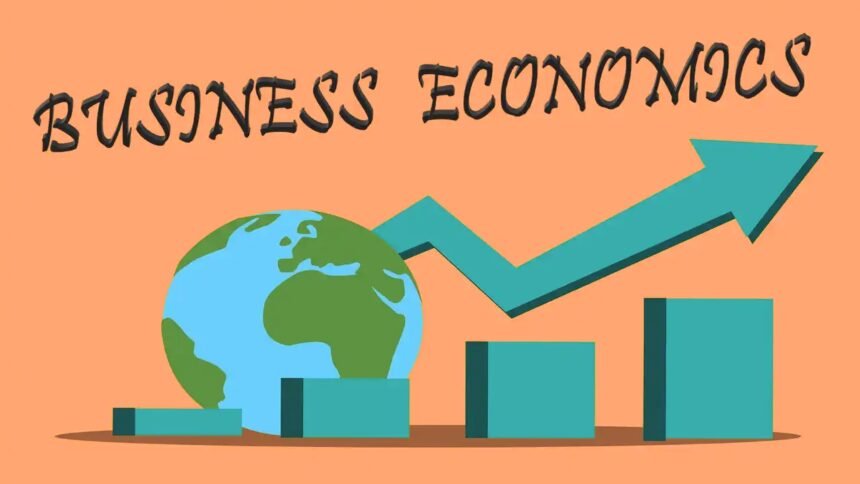In today’s swiftly evolving worldwide panorama, the relationship between economics in business is more vital than ever. Understanding the concepts of economics is critical for marketers, business leaders, and companies to thrive in a competitive environment. Economics provides valuable insights into resource allocation, market dynamics, and financial decision-making, all of which can be fundamental to business growth. When companies leverage economic theories, they can better navigate the challenges of supply and demand, inflation, and market fluctuations. In this article, we will explore how economics impacts business strategies, the effect of economic policies on business operations, and the role of economic trends in shaping the future of organizations.
The Role of Economics in Business Strategy Development
Economics and business are intrinsically linked, and the success of a business is often tied to how well it can adapt to economic changes. At its core, economics helps business leaders understand market conditions, consumer behavior, and resource distribution, which can significantly influence strategic planning. This understanding enables companies to make informed decisions that enhance growth and profitability.
Market Analysis and Consumer Behavior
A foundational aspect of economics is the study of supply and demand, which directly impacts business decisions. By understanding these economic principles, companies can predict customer needs, price their products effectively, and ensure that supply meets demand. For example, if demand for a particular product is high and supply is limited, businesses can adjust their pricing strategy to reflect the scarcity, thereby maximizing profits. Conversely, if the market is saturated, businesses must reconsider their strategies to distinguish themselves and maintain profitability.
Moreover, businesses benefit from analyzing consumer behavior. Economic theories, such as microeconomics, help marketers understand how customers make purchasing decisions. This knowledge enables companies to design marketing campaigns, product features, and customer service experiences that resonate with their target audience. Businesses that effectively use economics to anticipate changes in consumer behavior are better positioned to achieve long-term success.
Risk Management and Economic Forecasting
Another essential element of economics in business is risk management. By analyzing economic indicators such as interest rates, inflation, and unemployment rates, companies can forecast potential risks and make proactive decisions to mitigate them. For example, during periods of inflation, businesses may consider adjusting their pricing strategy or revising their cost structure to maintain profit margins. Economic forecasting allows companies to anticipate future market trends, helping them make more informed choices about investment opportunities, supply chain management, and expansion plans.
Expert Insight on the Role of Economics in Business
Dr. Richard Thaler, a renowned economist and Nobel Laureate, once said, “Economics isn’t just about numbers, it’s about human behavior and how we make decisions.” This quote highlights the importance of understanding the psychological and behavioral aspects of economics when developing business strategies. By recognizing the relationship between economic forces and human decision-making, businesses can create strategies that appeal to customers’ preferences, thereby fostering growth and sustainability.
Economic Policies and Their Impact on Business Operations
Economic policies are a significant factor influencing the operations of businesses. Governments implement regulations that directly affect the cost of doing business, access to capital, labor markets, and overall business regulations. Whether through monetary policies, fiscal measures, or trade policies, these policies can either support or hinder business growth.
Monetary Policy and Interest Rates
One of the most influential economic policies for businesses is monetary policy. Central banks, such as the Federal Reserve in the United States, set interest rates to regulate the money supply and control inflation. Changes in interest rates can have a profound impact on business operations. For example, when interest rates rise, borrowing costs increase, which can lead to reduced investment in new projects and expansion. Conversely, when interest rates fall, businesses may find it easier and more cost-effective to borrow funds for capital expenditures.
The relationship between monetary policy and business operations is particularly evident in industries that rely heavily on borrowing, such as real estate, construction, and manufacturing. Business leaders must stay informed about changes in interest rates to adjust their financial strategies accordingly. An effective response to shifts in monetary policy can be the difference between a company’s growth and stagnation.
Fiscal Policy and Taxation
Fiscal policy, which refers to government spending and taxation decisions, also impacts businesses. Tax policies determine the amount of income businesses must pay in taxes, which can directly affect profitability. Changes in corporate tax rates can influence investment decisions, hiring practices, and even the location of business operations. For example, a reduction in corporate taxes may encourage companies to reinvest their profits, expand operations, or increase employee wages.
Additionally, fiscal policies that promote government spending on infrastructure, research and development, or education can create new opportunities for businesses. These policies can lead to the creation of new industries or the expansion of existing ones, offering businesses new markets to explore. By aligning their strategies with fiscal policies, companies can leverage government initiatives to fuel growth.
Trade Policies and Global Business Expansion
Trade policies play a pivotal role in shaping international business operations. Tariffs, trade agreements, and regulations can either facilitate or hinder global trade. Businesses that rely on importing raw materials or exporting finished goods must stay abreast of trade policies to ensure smooth operations across borders. A shift in trade agreements, such as the renegotiation of the North American Free Trade Agreement (NAFTA) or changes in tariffs, can significantly affect the cost structure and competitiveness of businesses engaged in international trade.
For businesses aiming for global expansion, understanding the economic implications of trade policies is essential for making informed decisions about which markets to enter and how to position their products. Moreover, businesses must consider the economic environment of foreign markets, including local inflation rates, currency fluctuations, and political stability, when formulating international strategies.
The Influence of Economic Trends on Business Growth
The economic environment is constantly shifting, with new trends emerging that shape business operations. Business leaders must be agile and responsive to these trends to remain competitive. In recent years, certain economic trends have had a profound impact on how businesses operate and grow.
Technological Advancements and Economic Growth
Technological innovations are one of the most significant economic trends shaping business growth. Advancements in automation, artificial intelligence, and digitalization have transformed industries and created new opportunities for businesses to enhance productivity and reduce costs. Businesses that embrace technology are better equipped to streamline operations, improve customer experiences, and expand their reach to new markets.
For example, e-commerce has revolutionized the retail sector by providing businesses with a global platform to sell products and services. This technological shift has led to the rise of online marketplaces, such as Amazon, which have become dominant players in the retail industry. Businesses that fail to adapt to technological advancements risk falling behind their competitors, while those that embrace these innovations can experience rapid growth.
Sustainability and Green Economics
Another economic trend gaining momentum is sustainability. As consumers and governments place increasing pressure on businesses to adopt environmentally friendly practices, sustainability has become a key driver of business success. Companies that prioritize sustainable practices, such as reducing carbon emissions or using renewable energy sources, not only contribute to environmental protection but also attract eco-conscious consumers.
Green economics, which focuses on the balance between economic growth and environmental stewardship, is becoming a central theme in business strategy. By aligning business practices with sustainability goals, companies can build a positive brand image, enhance customer loyalty, and meet regulatory requirements.
Conclusion: The Symbiotic Relationship Between Economics and Business
In conclusion, economics plays a critical role in shaping business growth and success. By understanding economic principles and staying informed about market conditions, businesses can make strategic decisions that maximize profitability and ensure long-term sustainability. Economic policies, such as monetary, fiscal, and trade policies, also significantly impact business operations, requiring companies to remain adaptable and responsive to changes in the economic environment.
Furthermore, emerging economic trends, such as technological advancements and sustainability, present both challenges and opportunities for businesses. Companies that successfully navigate these trends are better positioned for growth and innovation in a competitive market.
Ultimately, the relationship between economics and business is symbiotic. By leveraging economic knowledge and aligning business strategies with economic realities, businesses can unlock their full potential and achieve sustained success in a dynamic global marketplace.






